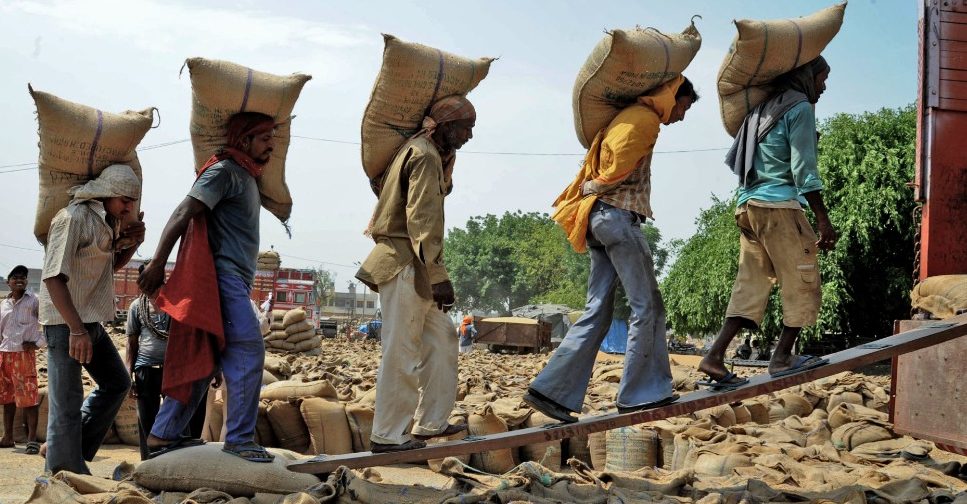India has been under a complete lockdown for the past several weeks but to ease out the financial stress being caused due to the complete stoppage of economic activities, the government has decided on reopening some key agricultural, industrial and construction sectors from today onward.
The government has the plan of opening up industries, agricultural activities and construction services in ‘green zones’ which are less affected by the coronavirus pandemic. In order to execute this, the Union Home Ministry has come up with a series of guidelines for states, that spells out the protocol about how workers can be transported to the sites of work amid the lockdown.
Many of these workers are presently living in relief camps in different states of the country and in order to get work, they will be required to register themselves with the local authorities. These local authorities will then work towards skill-mapping and allot work to them according to the requirements in different sectors in the state.
Once the skill mapping work has been completed, the workers who still wish to return back to their states will be screened by the district administration. Workers who don’t display any symptoms of COVID-19 will be transported back to their states. But what is interesting to note is the fact that, the home ministry has said that transporting workers outside the state or union territory is not permissible and it is in this context that the above direction is impossible to implement by local authorities dealing with migrant workers.
It is to be noted that lakhs of migrant workers were left without any livelihoods when the 21 day nationwide lockdown was announced in order to curb the spread of the novel coronavirus on March 25. While after tiresome journeys many workers did manage to reach home but several others are left stranded in relief camps across different state borders.
The crisis of migrant workers who have neither been able to reach home amid the lockdown nor have they any source of livelihood to sustain themselves in the meantime, have brought about serious concerns for the state. What to do in order to resolve the issues pertaining to the livelihoods of these migrant workers and what could be done as a measure to ensure that their problems don’t escalate into a law and order issue?
Faced with these troubling questions, PM Modi announced on last Tuesday that select economic activities will be permitted from April 20 in districts with no or low incidence of COVID-19 cases.
The states however have no clarity from the Centre, states and district administrations and are left grappling in such a situation. They are facing many logistical and structural challenges about how these workers could be transported to their work sites. This problem emerges extremely big and difficult to tackle also because the Centre put the entire onus of transporting these workers on the state and district administrations.
This is a big challenge because it may cause a threat to the implementation of the norm of social distancing. District administrations are also required to make sure that the buses which are used for the transportation of these workers are sanitised according to the guidelines framed by the health authorities. The guidelines also require states authorities to provide food and water to the migrant workers for the duration of the journey.
States like Punjab have issued their own set of guidelines and have said that industries that want to begin operating will have to arrange for the food and water of the migrant workers, conduct screenings everyday and provide sanitisers and masks to their workers.














